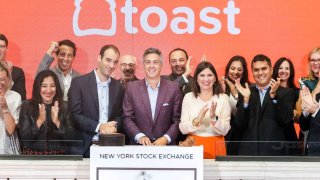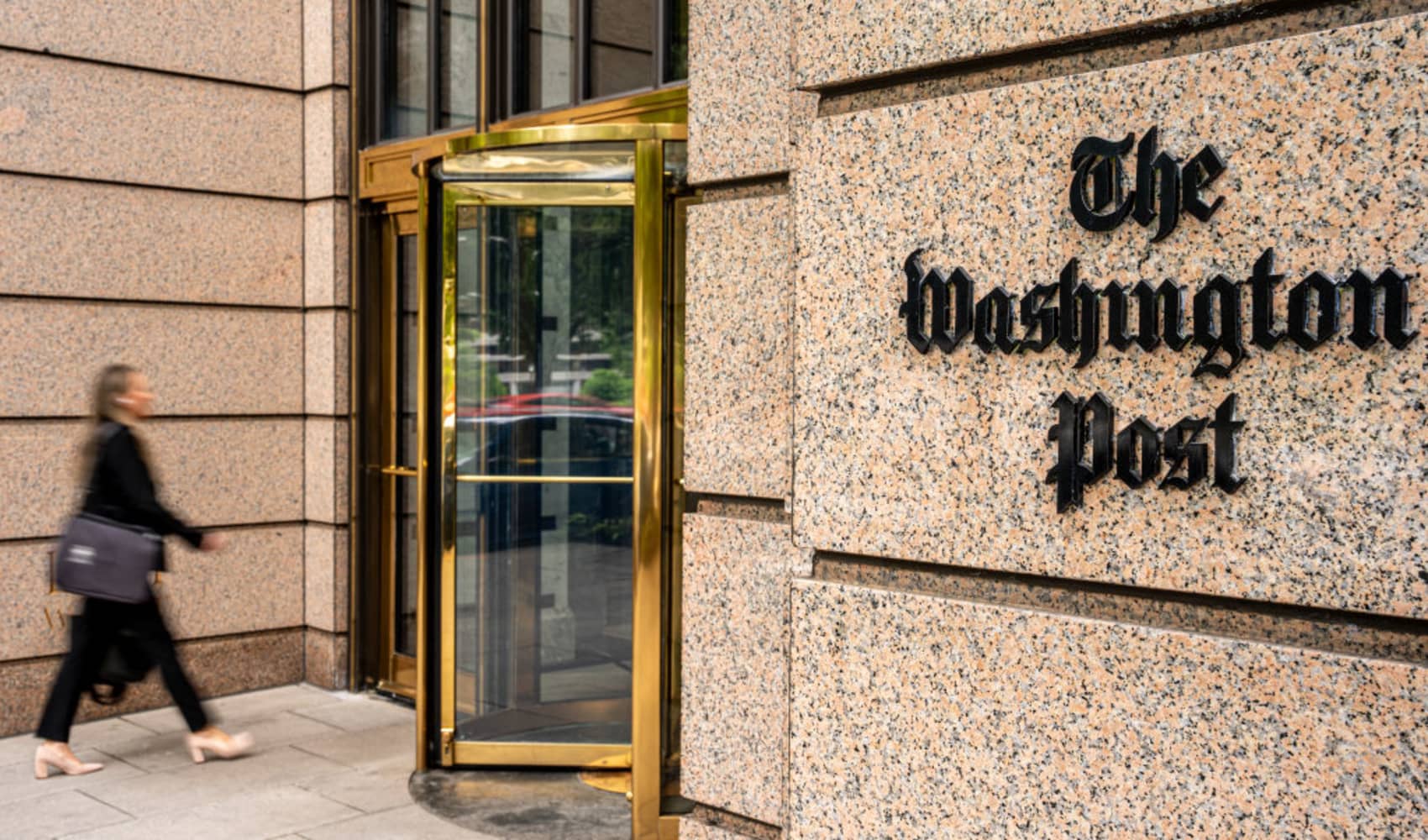
- Toast priced its IPO at $40 on Tuesday, above the expected price range of $34 to $36.
- Annual recurring revenue surged 118% in the second quarter from a year earlier to $494 million as more restaurants adopted the company's contactless payment technology.
- Toast's IPO valued the company at $20 billion, up from a valuation of $8 billion in a secondary share sale late last year.
Toast shares soared 56% in their New York Stock Exchange debut Wednesday after the provider of technology to restaurants priced its IPO above its expected range.
The company, whose products are used at more than 48,000 restaurant locations, raised about $870 million in its IPO, selling shares at $40 each. Toast previously said it expected to price the offering at $34 to $36, following an initial range of $30 to $33.
The stock closed at $62.51, boosting Toast's market cap to over $31 billion.
Get top local stories in Connecticut delivered to you every morning. >Sign up for NBC Connecticut's News Headlines newsletter.
Toast's IPO comes amid a business resurgence for a company that was devastated in the early days of the Covid-19 pandemic, when restaurants were forced to close their doors and cities across the country shut down. In April 2020, Toast slashed half its workforce, and CEO Chris Comparato wrote in a blog post that the prior month, "as a result of necessary social distancing and government-mandated closures, restaurant sales declined by 80 percent in most cities."
Sales rebounded rapidly as eateries shifted to takeout and contactless ordering and eventually opened up to outside dining. Toast initially gave a one-month credit of software fees to its customers and provided free access to its technology that enabled takeout, online ordering and gift card purchases. By the third quarter, revenue was back on the upswing and was even higher than a year earlier, before the pandemic.

For all of 2020, revenue rose 24% to $823.1 million. In the second quarter of this year, revenue almost tripled to $424.7 million. More than 80% of that is from what the company calls financial technology solutions consisting primarily of fees paid by customers for payment transactions. The rest comes from a combination of hardware, subscription services and professional services.
Money Report
Because it's so reliant on processing fees for revenue, most of that gets paid back to card networks and other payment processors. Toast's gross margin, or the revenue left after accounting for the cost of goods sold, was 21% in the second quarter, much lower than for a typical software company. With sales and marketing costs rising along with research and development expenses, Toast's net loss swelled to $135.5 million in the second quarter from $53.7 million a year earlier.
Founded in 2012 in Cambridge, Massachusetts, Toast started building payment technology for restaurants and eventually developed a full point-of-sale system. Before pandemic, Toast was thriving by helping restaurants combine their payment systems with things like inventory management and multilocation controls for eateries with more than one site. Investors valued the company at $5 billion in February 2020.
After the rebound from the pandemic, the company held a secondary share sale in November, allowing employees and ex-employees to sell some of their vested stock at a price that valued the company at $8 billion.
While investors are cheering Toast's growth, concerns remain about the restaurant industry, particularly as the fast-spreading delta variant continues to rip through large swaths of the country. Comparato told CNBC's "Squawk on the Street" on Wednesday that he's optimistic about where restaurants go from here.
"When we look at the delta variant and Covid in general, we feel the industry has been battle tested with the Covid pandemic," Comparato said. "While delta may dampen things, this industry is in recovery and we couldn't be more excited to lead the charge ahead as the industry recovers and restaurants start to thrive again."






